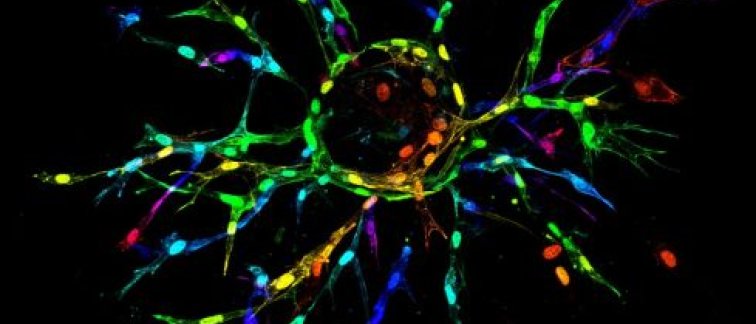Blood vessel formation (angiogenesis) is important for many physiological processes including development and wound healing, but is often derailed in pathological conditions such as cancer, where blood vessels grow in an uncontrolled fashion. One of the key drivers of angiogenesis is the growth factor VEGF, which binds to the VEGFR2 receptor on the surface of endothelial cells that line our blood vessels. VEGF/VEGFR2 signaling induces the appearance of specialized cells called tip cells, and instructs these to migrate into surrounding tissue and form new vessels. Approaches to prevent VEGF interaction with VEGFR2 to block this signal have so far been disappointing in tumors. We have found a specialized protein complex that protects VEGFR2 from degradation, which is essential to maintain VEGF signaling and to form tip cells. When this complex is inhibited, VEGFR2 is rapidly degraded, which halts signaling and blocks the formation of new blood vessels. This insight will lead to the development of novel strategies for therapeutic targeting of angiogenesis in the future.
For more information, see: Kempers, L., et al. (2021) The endosomal RIN2/Rab5C machinery prevents VEGFR2 degradation to control gene expression and tip cell identity during angiogenesis. Angiogenesis.

